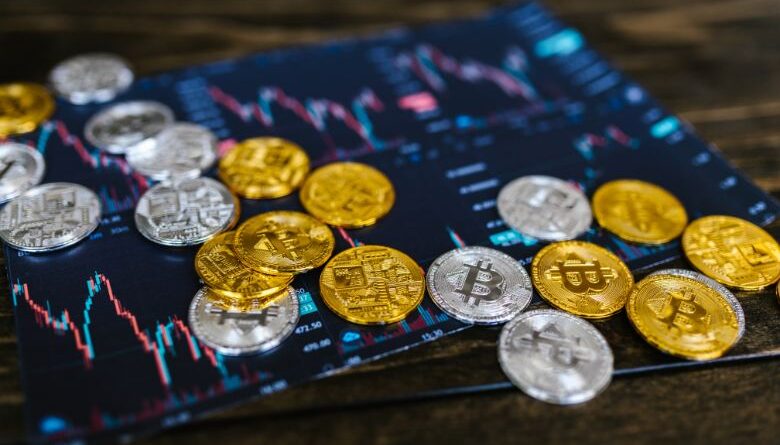Blockchain and Fair Trade: Empowering Ethical Supply Chains
Blockchain and Fair Trade: Empowering Ethical Supply Chains
In today’s interconnected world, consumers are becoming increasingly conscious of the products they purchase and the impact their choices have on the environment and society. As a result, the demand for ethically sourced and fair-trade products is on the rise. To meet this growing demand, businesses are exploring innovative solutions to ensure their supply chains are ethical, transparent, and sustainable. One technology that has shown immense promise in this regard is blockchain.
Introduction
Blockchain is a decentralized and immutable digital ledger that records transactions across multiple computers, ensuring transparency and security. Fairtrade, on the other hand, is a concept that emphasizes equitable partnerships between producers and consumers, promoting sustainable practices and fair wages. Combining these two powerful forces, blockchain can revolutionize the way we perceive and participate in fair trade.
The Need for Ethical Supply Chains
Conventional supply chains often lack transparency, making it difficult for consumers to trace the origin of products. Unethical practices, such as child labor and poor working conditions, can remain hidden in these complex networks. Ethical supply chains, on the other hand, prioritize social and environmental responsibility, offering numerous benefits for all stakeholders involved.
Understanding Blockchain Technology
Blockchain operates on a distributed network, meaning that every participant in the chain has access to an identical copy of the ledger. When a new transaction occurs, it must be verified by the network through consensus mechanisms, ensuring data integrity and eliminating the need for intermediaries. These features make blockchain an ideal candidate for transforming fair trade practices.
Blockchain and Fair Trade
Blockchain brings transparency and accountability to fair trade by providing an immutable record of every stage of the supply chain. From the origin of raw materials to the manufacturing process and final distribution, all information is securely stored on the blockchain, and accessible to consumers and stakeholders.
Enhancing Transparency
Transparency is crucial in fair trade, and blockchain ensures that all transactions are visible to relevant parties. Consumers can use QR codes or unique identifiers on products to access information about their journey, verifying the authenticity of fair trade claims.
Ensuring Traceability
Blockchain’s decentralized nature allows every step in the supply chain to be recorded in real-time. This traceability is essential for certifying fair trade practices and eliminating the possibility of counterfeit products infiltrating the market.
Reducing Fraud and Counterfeits
Counterfeit products not only hurt businesses but also mislead consumers who believe they are buying ethically sourced goods. Blockchain’s tamper-proof system makes it extremely challenging for counterfeiters to replicate products and deceive consumers.
Impact of Blockchain on Ethical Supply Chains
Integrating blockchain into fair trade initiatives empowers producers and workers by providing them with a transparent platform to showcase their efforts and receive fair compensation for their labor.
Empowering Producers and Workers
Small-scale producers, especially in developing countries, often face exploitation and unfair wages. Blockchain enables direct transactions between buyers and producers, eliminating the need for intermediaries and ensuring that the benefits reach those at the grassroots level.
Encouraging Sustainable Practices
Blockchain can incentivize sustainable practices by rewarding producers who adhere to ethical and environmentally friendly methods. This fosters a culture of sustainability within the supply chain.
Strengthening Consumer Trust
Consumers are more likely to support fair trade when they have verifiable evidence of a product’s ethical journey. Blockchain’s transparency and traceability instill confidence in consumers, encouraging them to make conscious choices.
Case Studies
Several industries have already embraced blockchain for fair trade practices. In the fair trade coffee industry, blockchain has been utilized to track coffee beans from farms to shelves, ensuring that the farmers receive fair payment for their hard work.
Ethical fashion brands are also turning to blockchain to verify the authenticity of sustainable materials and labor practices, building trust with consumers who prioritize ethical products.
Challenges and Limitations
While blockchain holds great potential for fair trade, there are challenges that need to be addressed for widespread adoption.
Scalability Concerns
Blockchain networks can face scalability issues when dealing with a large number of transactions simultaneously. As fair trade initiatives gain popularity, it’s crucial to ensure that the technology can handle increased traffic efficiently.
Adoption and Integration Issues
Integrating blockchain into existing supply chains may require substantial effort and investment. Convincing all stakeholders to embrace this technology can be a significant hurdle.
Future Prospects of Blockchain in Fair Trade
The future of blockchain in fair trade looks promising, with several exciting prospects on the horizon.
Collaborative Supply Chain Management
Blockchain can facilitate collaboration among various stakeholders in the supply chain, promoting collective decision-making and more effective resource allocation.
Social and Environmental Impact
Blockchain’s ability to capture data related to social and environmental impact can help companies measure their contributions to fair trade practices and sustainable development goals.
Conclusion
Blockchain technology is paving the way for a more transparent, accountable, and ethical future in fair trade. By harnessing the power of blockchain, businesses can demonstrate their commitment to social responsibility while empowering consumers to make informed choices.
FAQs
- How does blockchain enhance fair trade practices? Blockchain provides a secure and transparent platform that records every step of the supply chain, ensuring fair trade claims can be verified.
- Can blockchain prevent counterfeits in fair trade products? Yes, blockchain’s tamper-proof system makes it difficult for counterfeiters to replicate products, protecting the integrity of fair trade goods.
- What impact does fair trade have on producers in developing countries? Fairtrade empowers producers in developing countries by offering fair wages and promoting sustainable practices.
- How does blockchain encourage sustainability? Blockchain can reward producers who adopt sustainable practices, encouraging environmentally friendly methods within the supply chain.
- Is blockchain adoption feasible for all businesses? While blockchain holds potential for fair trade, businesses must address scalability and integration challenges for widespread adoption.
- AR in Architecture and Design: Visualization and Collaboration
- The Role of Technology in Ocean Conservation





Pingback: AI in Disaster Response: Enhancing Emergency Management | UTHSI 2023